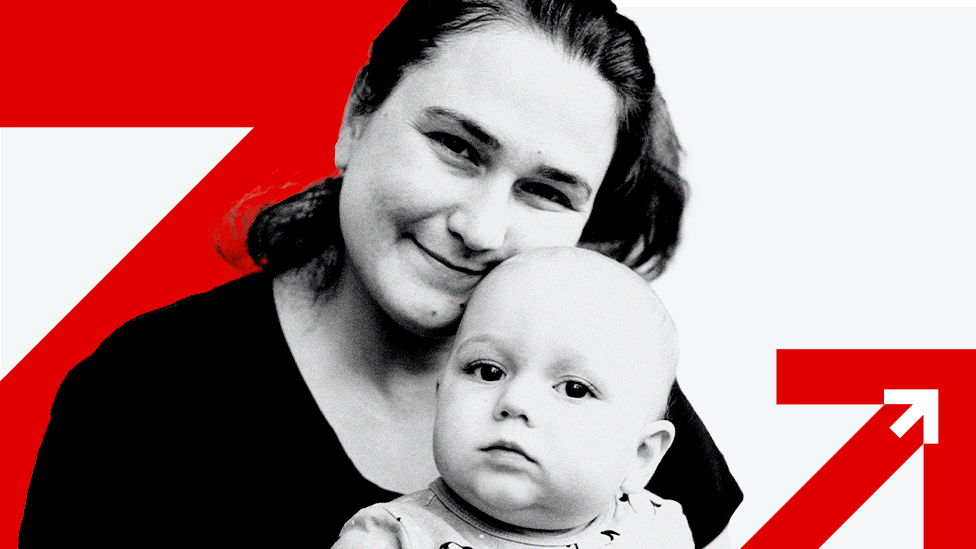Newport: Charity delivers affordable African food parcels
- Published
A charity is putting together parcels of African food for people who cannot afford food from back home due to the cost of living crisis
A charity that delivers African food parcels in Newport says it is helping people get food they cannot afford to buy.
The Zimbabwe Newport Volunteering Association delivers between 30 and 50 African food parcels a month.
Its founder said many African foods were unaffordable in specialist shops due to the cost of living crisis.
One mother said it meant her 17-month-old daughter could become familiar with food "from home".
Robert Muza, the charity's founder and chair, said beneficiaries were appreciating the parcels "more and more" due to the rising cost of living.
"Where we go and buy and fetch these items they are more expensive because they are not produced locally, they are getting shipped all the way from Africa," he said.
"It's not just the food items, we also take leaflets and information on the cost of living crisis, signposting them further to other agencies for better opportunities in employment, volunteering or for their mental health."
Parcels include items such as fufu flour, which is made from mashed plantain, South African sausage boerewors and maize meal, which is made from dried corn kernels.
Latoya Musonza, 36, from Zimbabwe, has been helped by the project. She has a 17-month old daughter, Tamaya, and says life has had its "ups and downs".
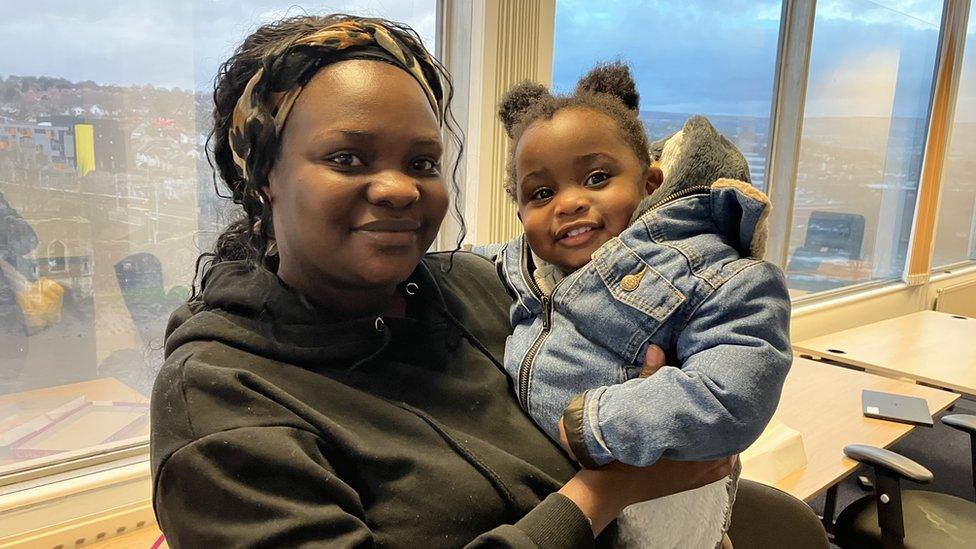
Latoya Musonza was granted asylum in the UK in 2019
"It was more difficult when I was on asylum surviving on £40 a week and you can't work so it's quite hard," she said.
"Now it's a bit better because when I was granted my [asylum seeker] status [I started] getting help from Universal Credit and also child benefit.
"It's never enough because as a single mother the bills are so high. The gas, the electricity, food, so I can't say it's easy but I'm glad I'll be starting university at the University of South Wales from September."
Latoya says the charity has "always been there" throughout the pandemic and now the cost of living crisis.
"The food is like from home," she said.
"It's really been helpful but it's also good for children like my daughter to be familiar with food from where I come from."
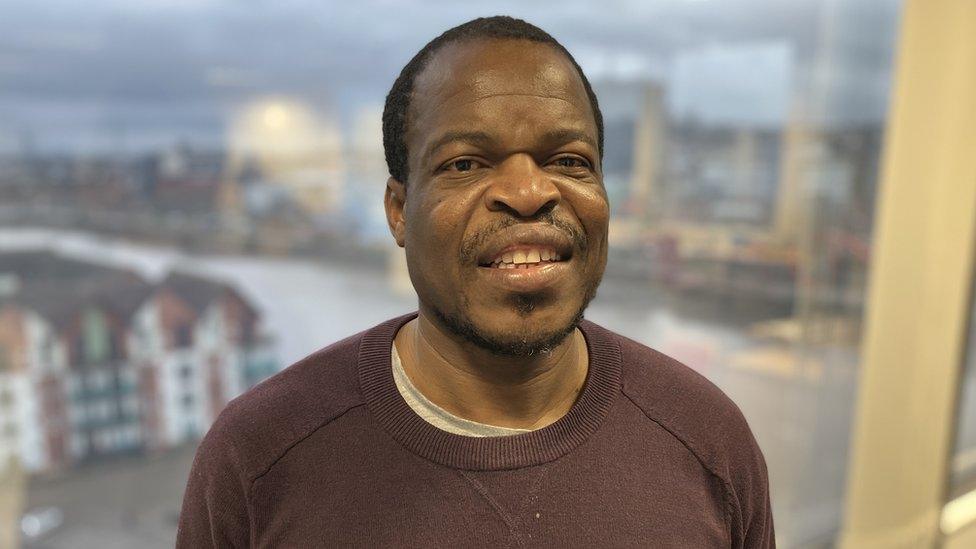
The project has received a grant from Community Foundation Wales which set up a fund to support black, Asian and ethnic minority communities badly affected by the pandemic
Mr Muza believes the cost of living crisis is having a particular impact on some people in African communities.
He said people could feel isolated without extended family networks, may be sending money to relatives in Africa and can be reluctant to seek help due to stigma around using food banks.
He said that is why he delivers the food parcels or arranges for people to collect them from his house.
"Most people they don't want to be seen collecting a food parcel," he said.
"So with our model of coming to the house there's more privacy."
Samson Muputa, one of the volunteers, has previously been homeless and said life was "really, really difficult" for many with the cost of living crisis following the pandemic.
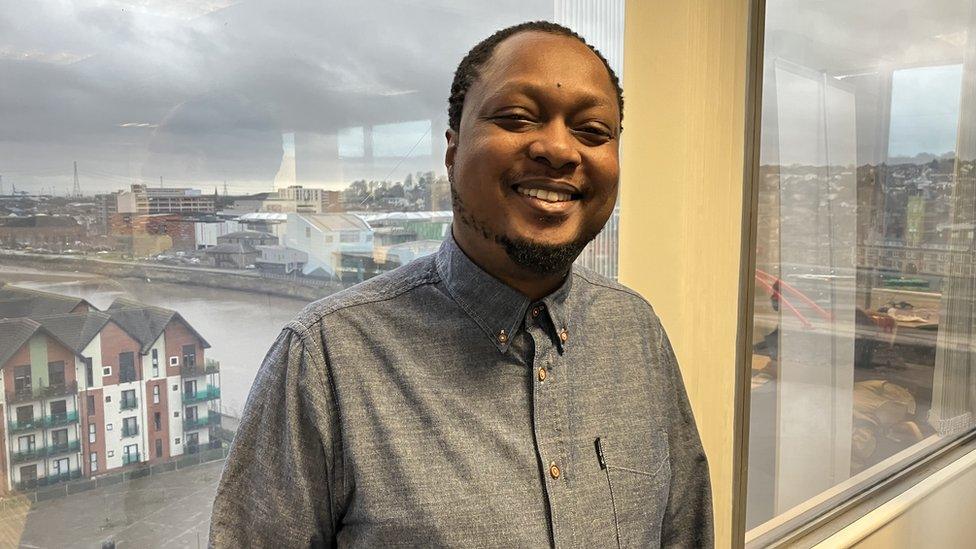
Samson Muputa emphasised the price increase of groceries
"Two bags of groceries from Aldi will cost me £30. Just a year and a half ago it would be half the price," he said.
Luke Young, from Citizens Advice Cymru, said new analysis showed people who are black, black British, Caribbean and African have a disproportionate take-up of the charity's services in Wales.
"What that tells us is those particular communities are facing particular challenges in the cost of living crisis," he said.
"What it often means is that some of the entrenched inequalities that exist in society are causing more of an effect right now for those particular bits of the population."
You can see more on this story on Wales Live on BBC One Wales at 22:35 GMT and on BBC iPlayer.

WALES LIVE: Behind the headlines of Wales' biggest stories
WALESCAST: Your one-stop shop for Welsh politics

Related topics
- Published7 February 2023
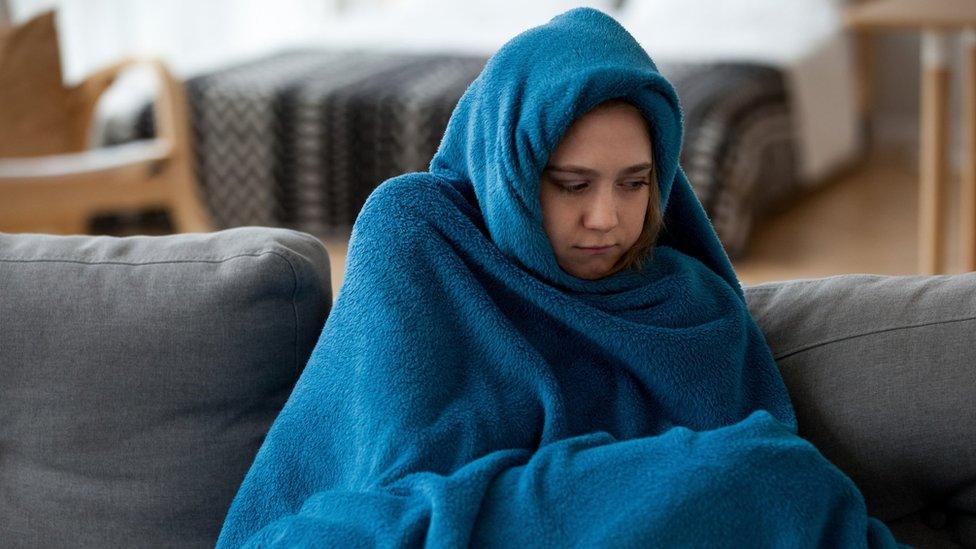
- Published11 February 2023
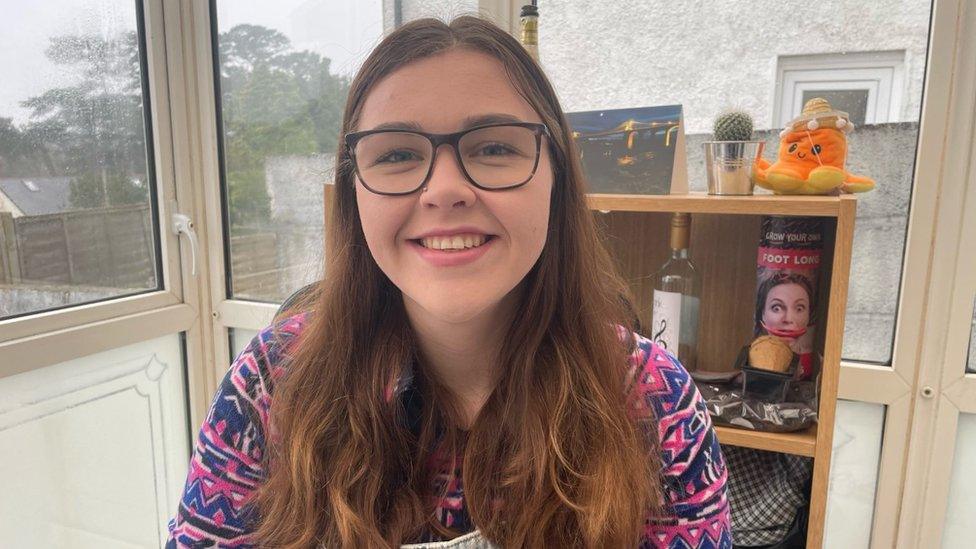
- Published3 June 2022
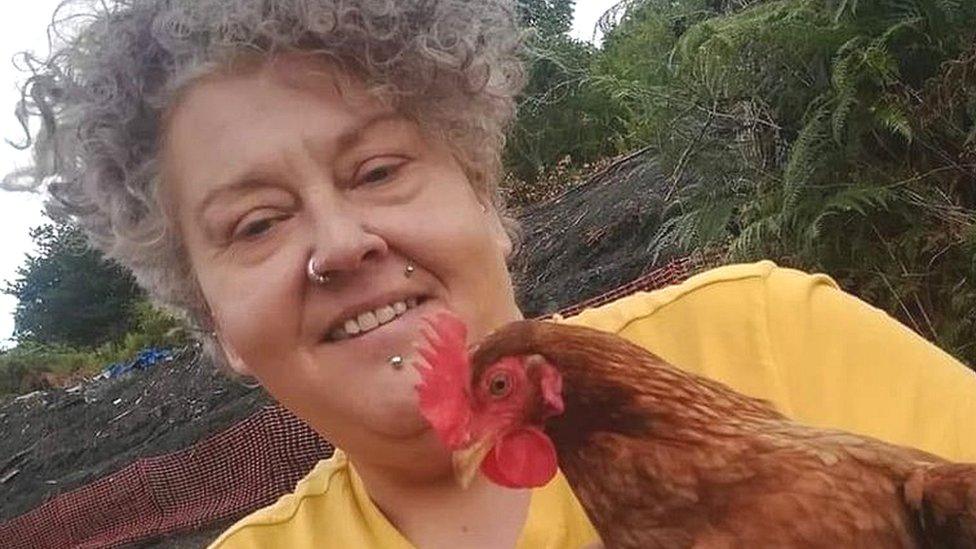
- Published15 February 2024
